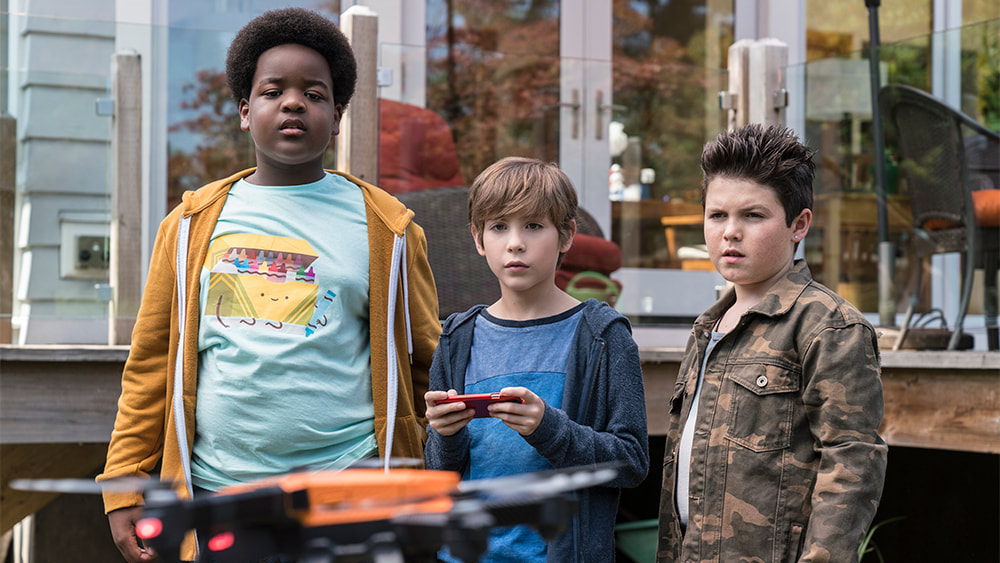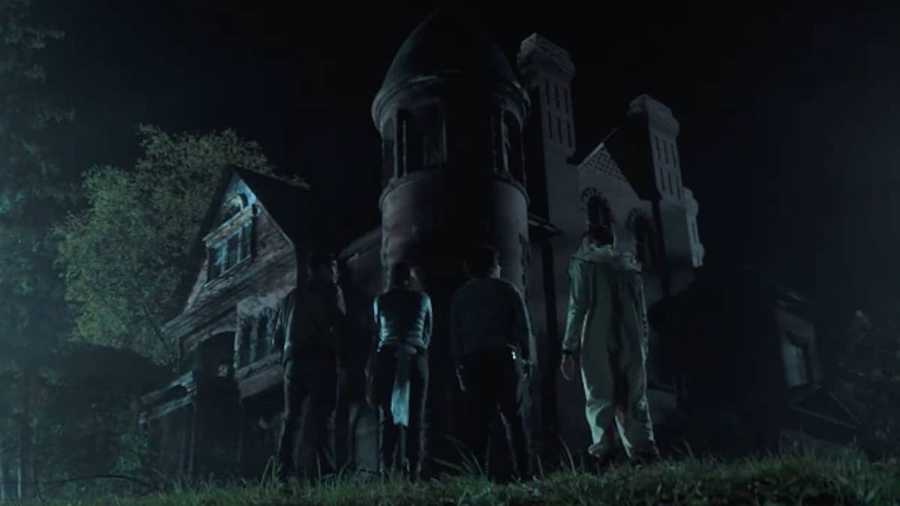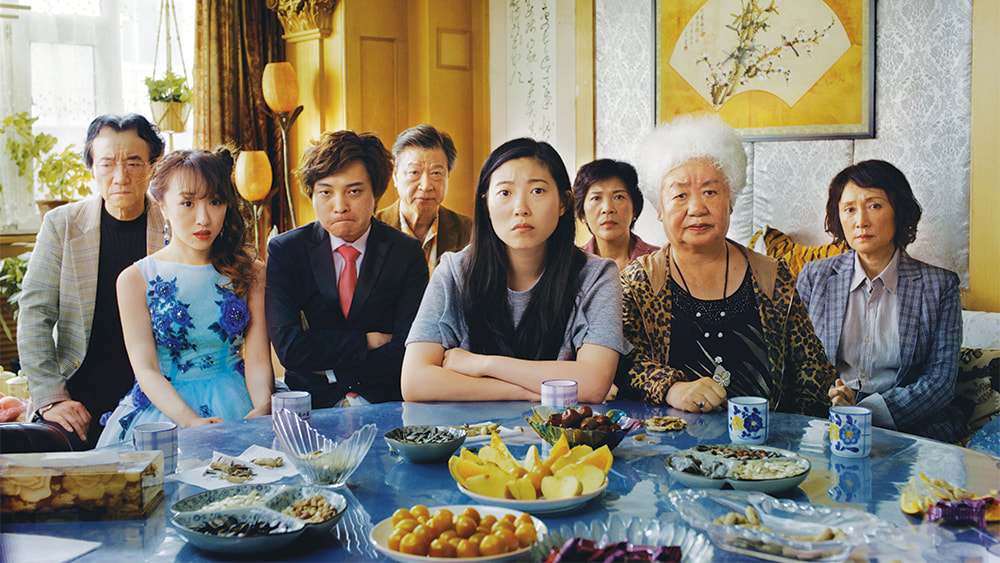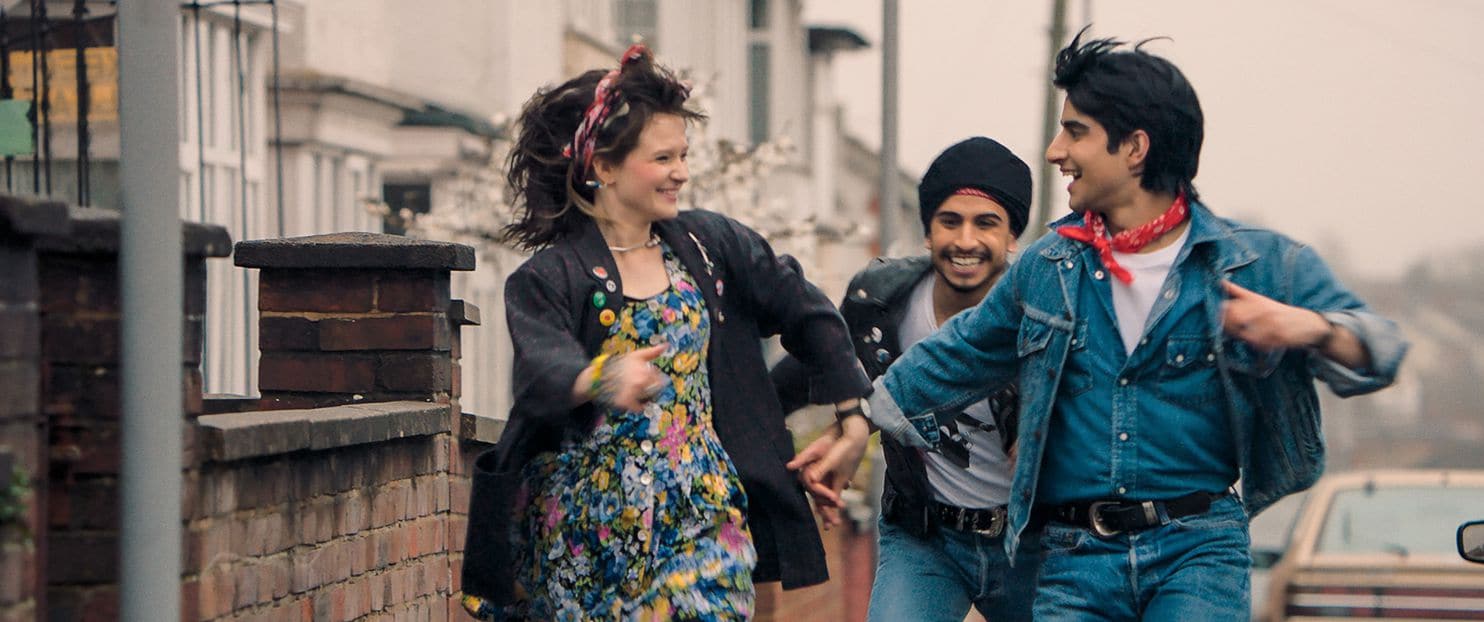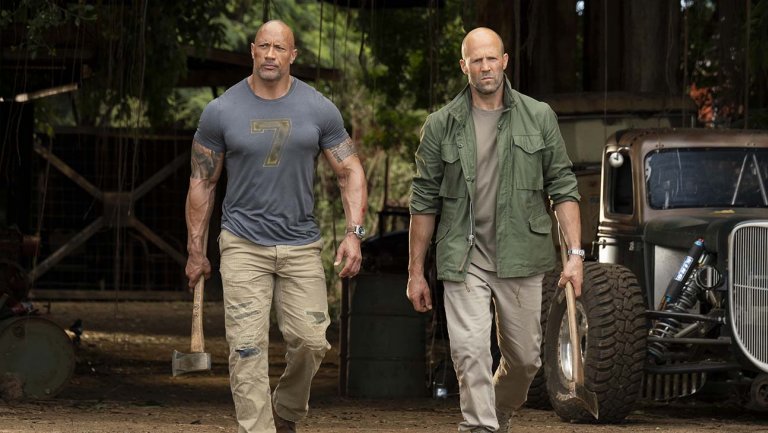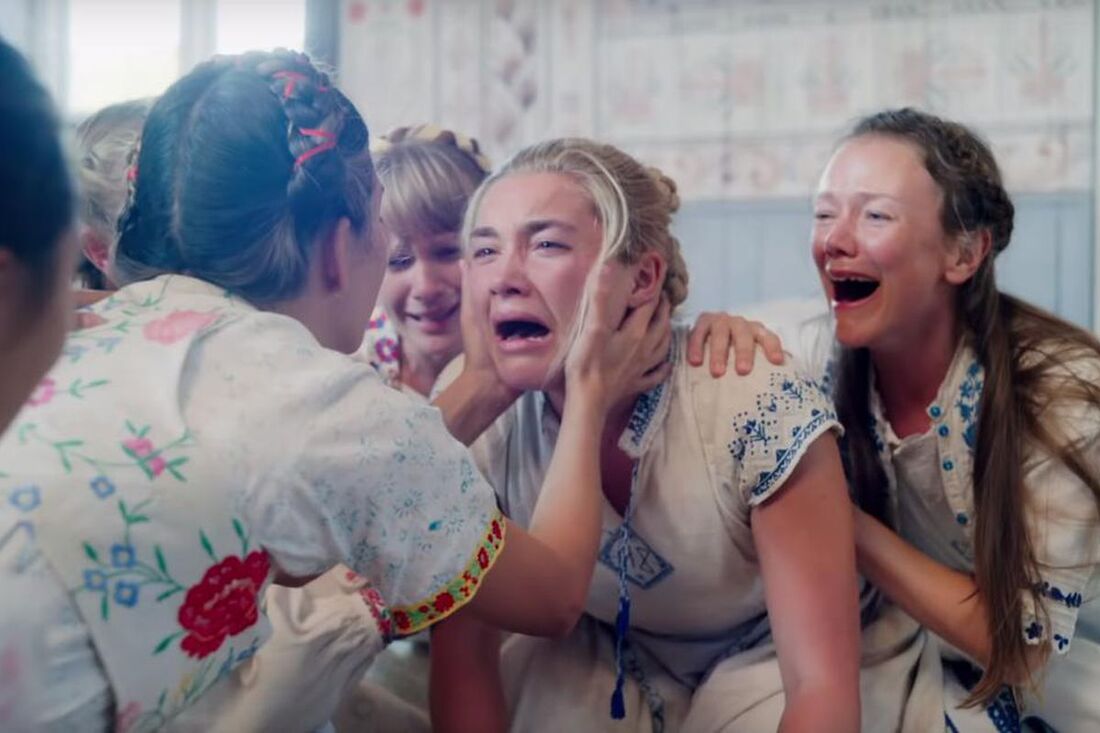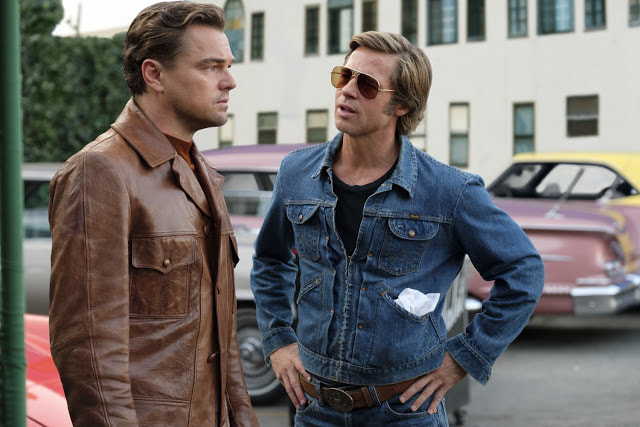|
by Philip Price Director: Gene Stupnitsky Starring: Jacob Tremblay, Keith L. Williams & Brady Noon Rated: R Runtime: 1 hour & 29 minutes If 12-year old's could actually see the new Seth Rogen-produced comedy, “Good Boys,” which chronicles - in too honest a nature for their own sensibilities apparently - the misadventures of this transformative stage from elementary to middle school then there would undoubtedly be a thousand more "bean bag boy" trios popping up across the nation tomorrow and ... in all honesty ... that wouldn't be such a bad thing.
For all of the promotional focus around this movie being on the gimmick of it starring actors too young to see their own movie because of the words and actions they say and do the truth of the matter is that despite this seemingly backwards rule (for the record, I don't think anyone under 15 should probably watch this if for no other reason than to preserve as much innocence as possible for as long as possible) the heart of “Good Boys” lies in the fact that a sweetness is ultimately born from the vulgarity it would seem reliant upon. Our three co-leads, best friends and founding members of the aforementioned "bean bag boys" are so oblivious to the true meanings of some of the things they say, so unsuspecting in the ramifications of some of their actions and -most importantly - have the best of intentions in the quest the movie ultimately sends them on that the crudeness that comes to serve as the details in said quest only make to further emphasize the honesty of how kids act among themselves when their parents and elders aren't around. This point of these children being tawdry is just that - to garner cheap laughs from their peers, not because they actually possess such personalities; they're unrefined, sure, but they're not crass. The minutiae of such distinctions allows for the kids themselves to feel blameless in their thoughts and in their words, but more products of their environments in the truest sense of the phrase. This is where “Good Boys” becomes something wholly different in its approach though, for as much as the movie is, on a surface-level, about garnering laughs from 12-year old's saying the "F" word writer/director Gene Stupnitsky and co-writer/producer Lee Eisenberg seem intent on emphasizing the fact the title of their film is more earnest than it is satirical; meaning the bean bag boys - despite all the trouble they get into - are in fact, fundamentally, honest-to-God good boys.
0 Comments
by Philip Price Director: André Øvredal Starring: Zoe Margaret Colletti, Michael Garza & Gabriel Rush Rated: PG-13 Runtime: 1 hour & 48 minutes Set among the warm fall colors in 1968, director André Øvredal's (“Trollhunter”) adaptation of Alvin Schwartz's collection of folklore that are forever ingrained in the minds of the children who read them thanks to Stephen Gammell’s red and blue-tinged illustrations is a genuinely frightening slice of nostalgia horror aimed at the same audience as Schwartz's three collections of short stories with the visual prowess to line up alongside the creepiest of horror shows.
It's a difficult line to skirt and an even greater feat to accomplish, but what allows this compilation of the individual stories to feel like a cohesive whole is both the fact that no individual creature or arc is meant to outshine the other and that Øvredal along with screenwriters Dan and Kevin Hageman with a credit also going to producer Guillermo del Toro is the fact they utilize said creatures and arcs within the architecture of your standard "killer/slasher" structure to enhance the character arcs of our heroes. The caveat of this adaptation is that they've made each of these "scary stories" a symptom of the same source - a book written by the strange, misbegotten daughter of the family who founded this rural farming community in which the film takes place: Sarah Bellows. This plot device of a literal book of scary stories allows for the main characters to have the knowledge and understanding of what they're dealing with, for the structure to ratchet up the tension by placing a ticking clock via the head count and finally, for the Hageman's and del Toro to write these protagonist's in a way so that the stories they end up in from Bellows' book are of a metaphorical nature thus lending the individuals and the stories themselves a certain amount of depth. This isn't to say “Scary Stories to Tell in the Dark” transcends the horror genre and will go on to serve as a defining piece of work, but more that this film in particular had the difficult task of relaying a work written for children that was meant to make those children feel like adults into a movie that looked as if it were made for adults, but successfully functioned as a movie for both audiences. And sure, different genres do this all the time, but there has always been a clear distinction between PG-13 horror and R-rated horror and while some of this achievement may be relegated to the fact this was granted a PG-13 rating and we therefore accept this content is acceptable for younger teen audiences, to see past the semantics is to see that ‘Scary Stories’ doesn't simply achieve the objective of being creepy, but it ever so quietly works its way into that rarified air of being a horror film that feels as familiar and comforting as the fall leaves its set within while still being unnerving; hell, it may not break any barriers, but it does feel like a breath of fresh air. by Philip Price Director: Lulu Wang Starring: Awkwafina, Tzi Ma & Diana Lin Rated: PG Runtime: 1 hour & 40 minutes “Don’t spend it on practical things like rent! Buy yourself something nice,” is maybe the most “grandmother” thing one can say and “The Farewell” certainly knows how to home in on the very best aspects of what makes grandmothers “grandmothers”. And yet, what is most appealing and refreshing about Lulu Wang’s film and its approach to its delicate subject matter is that it’s as equally sweet and simple as you remember the world as seen through your grandma’s eyes while layering in the complexities and complications of your modern, adult environment.
As someone who no longer has either of their grandmothers with them, but was respectably close to both if not much closer to one than the other it came as something of a shock (and a reality check) when it became clear in the years following their deaths that there was as much to be derived about these women I only knew at a very specific stage of their lives from those they most influenced when they were alive as there was to be learned from what they taught me face to face ... maybe even more so. In other words, this idea of paying it forward and the importance of not necessarily personal legacy but doing one’s small part to ensure continued decency came to be that much clearer. The idea of “paying it forward” is undoubtedly admirable, but “The Farewell” is about paying things back; it’s good to look forward, it’s right to nurture the future, but it’s essential to honor those that brought us to this point as well. Deceivingly simple in its approach, “The Farewell” for a fair portion of its running time seemed as if it were destined to be one of those indie darlings that received such high praise so early out the gate that by the time it reached my unimportant market would be diminished by lofty expectations and yet, as the film’s third act begins and it draws its lines to the center to connect these seemingly disparate, but altogether necessary strands the impact of what Wang has crafted hits you full force. I was in tears. Also, Alex Weston’s score is the unsung hero of the piece and deserves to be nominated for all the awards. For lack of a better phrase, it truly makes the film sing. by Philip Price Director: Danny Boyle Starring: Himesh Patel, Lily James & Sophia Di Martino Rated: PG-13 Runtime: 1 hour & 56 minutes There are a thousand holes one could poke in the premise of “Yesterday” (yes, we all know Coldplay wouldn't exist as we know them if The Beatles didn’t come first and of course The Beatles’ music wouldn't be received in the same fashion today as it was 50 years ago - timing is everything), but to dig into director Danny Boyle's latest in regard to these factors alone is to miss the point of the film completely.
First off, I'm a sucker for these types of light comedies that throw logic out the window and instate a "what if" scenario for the sake of our protagonist learning a valuable lesson (think the majority of Jim Carrey's comedies), but second - and more importantly - is that “Yesterday” is able to touch on both the sadness and re-assuredness in knowing that there are as many possibilities for us to fail in as there are for us to succeed; it's reassuring knowing we succeeded when we very easily could have failed while it's somewhat disheartening to know there are possibilities in our lives we'll never fulfill. The key to this, as with everything in life, is of course finding balance and not so much dwelling on what might have been, but as screenwriter Simon Curtis is so consistently good at effectively putting it: cherish the moment, cherish the present moment. Boyle's efficient storytelling and cutting techniques also help this would-be saccharine tale come off with the necessary edge that pairs perfectly with its singular soundtrack. Call me a sucker if you like, but I'll drink this Kool-Aid all day long. by Julian Spivey Director: Gurinder Chadha Starring: Viveik Kalra, Kulvinder Ghir & Nell Williams Rated: PG-13 Runtime: 1 hour & 58 minutes “For the ones who had a notion … that it ain’t no sin to be glad you’re alive.”
“It’s a town full of losers and I’m pulling out of here to win.” “Tramps like us, baby, we were born to run.” The theme of breaking free from your average, boring life and becoming something greater than what you are and what you’ve been is a major theme in Bruce Springsteen’s early discography. I think this is why his music speaks to so many from small town America and small towns throughout the world who want something more than their life has given them. It’s what Sarfraz Manzoor wanted growing up in Luton, southeast of London in the United Kingdom in the 1980s after his family emigrated from Pakistan. Manzoor found inspiration and a kindred spirit in the music of Springsteen, which though it’s mostly about New Jersey white characters like him was able to translate to a Pakistani teen living in Britain. Manzoor published his memoir Greetings from Bury Park: Race, Religion and Rock N’ Roll in 2007 about the impact Springsteen’s music had on his life. It’s Manzoor’s memoir that was the inspiration for Gurinder Chadha’s (“Bend it Like Beckham”) latest film “Blinded by the Light,” which was co-written by Manzoor, Chadha and Paul Mayeda Berges. “Blinded by the Light” tells the story of Javed, a stand-in for Manzoor, a British-Pakistani Muslim who lives under the rule of his strict father Malik, played by Kulvinder Ghir. The performance of newcomer Viveik Kalra as Javed is near perfection as a young man trying to become a man on his own terms with the dream of being a writer, despite the fact his father wants him to learn economics so he can one day do something better than working in factory or becoming a taxi driver. It’s the music of Springsteen, recommended to him by college classmate Roops (played by Aaron Phagura), that helps him get the nerve to deal with his father, helps him fall in love with a girl and helps him grow into who he wants to be. It seems a little fairytale-ish, but Springsteen’s music really does have a power behind it. It’s why his fan-base, which includes me, treats the man almost as a deity. Javed’s relationship with his father mirrors that of Springsteen and his father and that’s why featuring a song like “Independence Day” in such a prominent place in the film is important. We realize that Malik is simply doing what he believes is best for his son and his family and that there are truly no villains in this relationship, just two stubborn men trying to live out their dreams. More than 10 Springsteen songs are featured in “Blinded by the Light” and the film does a terrific job of working them into the movie flawlessly. It was a great feature by Chanda to highlight some of the important lyrics to Javed by having them appear on the screen as he’s listening to the songs on his Walkman. My two favorite scenes involving Springsteen’s music feature my personal favorite Springsteen songs. The first comes as Javed is getting up the nerve to approach the girl he likes, Eliza (played by Nell Williams, looking like a young Kristen Dunst), by performing “Thunder Road” for her in a busy market while being joined by his best friend’s dad, played by Rob Brydon in a comic relief role. The second scene is when Javed and Roops hijack the school’s radio station and play “Born to Run” before meeting with Eliza and running through the halls and nearby streets singing it at the top of their lungs. Chanda made the great decision to film these scenes, especially the “Born to Run” one, as if they were in a musical and it works wonders. I dare you not to smile during these moments, even if you’re not familiar with Springsteen’s work. “Blinded by the Light” is a film that works on multiple levels – as a fish out of water story, as a father/son relationship story and as a tribute to a musical legend. I briefly wondered if it was a film that would be able to be enjoyed by non-Springsteen fans (though such a thing should not exist) and I settled on the fact that there’s enough going on here that even without any knowledge whatsoever of Springsteen it’s a story that can be felt and identified with anyway. by Philip Price Director: David Leitch Starring: Dwayne Johnson, Jason Statham & Idris Elba Rated: PG-13 Runtime: 2 hours & 17 minutes “Fast & Furious Presents: Hobbs & Shaw” is a movie where, in the breadth of a single scene, we are witness to a character stating that, "humanity's hate for itself is greater than its self-preservation" alongside another piece of dialogue that goes something like, "genocide, smenocide." This is to say that ‘Hobbs & Shaw’ very much knows what it wants to be with the question being if by the end of its mammoth two hour and 17 minute runtime it actually has become what it wanted to be. One might interpret these two opposing lines of dialogue (spoken by the same character, I might add) for a film that wants to have its cake and eat it too by being both a serious action film that in fact takes itself seriously while injecting consistent moments of humor with the obvious outcome being that the latter then also consistently undermines the former, but what sets ‘Hobbs & Shaw’ apart from its ‘Fast & Furious’ brethren is that, from the get-go, it's apparent this thing doesn't take itself serious at all - in any regard - and so, when a character does begin spouting philosophical verbiage as Idris Elba's Brixton Lore does from time to time he does it with his tongue planted firmly in his cheek. It only seems natural this would be the case in a movie where both Dwayne "The Rock" Johnson and Jason Statham play what are more or less heightened versions of their own public personas whilst The Rock takes down a helicopter with his bare hands and Statham shows off his Wing Chun kung fu, karate and kickboxing skills to the extent that if he and director David Leitch (“John Wick”) don't team-up for a martial arts-heavy film series to jump-start the next phase of Statham's career I will be sorely disappointed.
As the ninth film in the series, but the first spin-off it only feels like the natural evolution for ‘Hobbs & Shaw’ to be as outlandish and self-aware as it is and in following through on these instincts in every situation and not attempting to get too caught-up in plot, basing anything in anything resembling reality, or details such as logic and physics Leitch and his crew end up delivering exactly what audiences are looking for from this type of summer blockbuster. Keeping a keen eye on character and an even tone with the humor and its balance with the legit action ‘Hobbs & Shaw’ maintains the emphasis on character being most important as that's what brought us here in the first place while the delivery of tight fight choreography and colossal action set pieces is what convinces us that not only should we continue to care about and invest in these characters, but that the creative forces behind the scenes care about them too...and that's ultimately what allows ‘Hobbs & Shaw’ to succeed at becoming exactly what it wanted to be. by Philip Price Director: Ari Aster Starring: Florence Pugh, Jack Reynor & Vilhelm Blomgren Rated: R Runtime: 2 hours & 27 minutes Now is the time to speak clearly. This seems to be writer/director Ari Aster's thoughts on the horror genre when approaching his follow-up to last year's breakout genre flick, “Hereditary.” Speaking clearly in that almost every scene in “Midsommar” post-title card takes place in the blazing daylight of rural Sweden where the sun seemingly only sets for less than a handful of hours during the summer. In a film that features some of the gnarliest death scenes I've seen, violence so blunt it will make you think Aster is collaborating with S. Craig Zahler, and a third act so twisted and bizarre it will make you question just how twisted and bizarre you are for sitting through it, “Midsommar” somehow manages to also be a story about Florence Pugh's Dani and her learning how to be both an independent and strong woman who takes control of her own destiny for what is maybe the first time in her life. It just so happens that it takes ancient rituals and bizarre competitions at the hands of a pagan cult to bring these qualities forward.
Pugh is great by the way, as is Jack Reynor, but Pugh's portrayal of Dani as this person who relies on people and then relies on more people about how much she relies on others is truly psychologically draining and emotionally concerning. Upon arriving in Sweden, the clock begins to count down almost immediately as we know something terrifying is coming even if we have no idea where the movie is going. It's almost like a J.J. Abrams "mystery box" scenario of sorts, but one that is sure of itself in that it packs actual resolutions and meaning into its narrative. The experience of “Midsommar” building toward its third act and unraveling accordingly is, much like the cinematography, one of the purest and most precise exercises in tension I've witnessed in some time. Did it need to be nearly two and half hours? Probably not as it really begins to feel its length near the end, but it also tends to build at such a natural pace that it's hard to say what the film could have gone without. All things considered I was fascinated by everything within the frame here as well as everything between the lines, but while I could see watching this a second time solely for perspectives sake and knowing what to look for past the surface I doubt there would ever be a desire to see or experience it again. by Philip Price Director: Tom Harper Starring: Jessie Buckley, Julie Walters & Sophie Okonedo Rated: R Runtime: 1 hour & 41 minutes We meet Jessie Buckley's Rose-Lynn as she is being released from a stint in prison at the beginning of “Wild Rose” and immediately understand how out of whack her priorities are when she stops to see a chap who still lives with his mum to get in a quick shag before going to her mother's house to see her two children.
This is indicative of the type of person Rose is and, unfortunately, the type of person we'll be dealing with for the next two hours. Rose is someone who can't help but get in her own way and while this can arguably make for a tragic foil to our hero it's hard to place that foil in the hero role and not become immensely irritated with the movie and the character as a whole. I unashamedly love movies about music, the music business and struggling artists searching for that big break, but Rose-Lynn isn't so much searching for her big break as she is waiting for it and thus is the reason “Wild Rose,” at least for me, doesn't work as a tale of redemption. In short, Rose is irritating because she has this goal of being a country singer from Glasgow (a unique and fun little idea, for sure) yet she doesn't possess the focus for it and as far as one can tell by the developments in the story, she hasn't even done enough research to know what she should be focusing on. After getting a job as a maid at the wealthy Susannah's (a wonderful Sophie Okonedo) and then convincing Susannah she has a real talent, Susannah sticks her neck out for Rose organizing a meeting with the BBC's "Whispering Bob" Harris to which the takeaway is that Rose should start writing her own songs. How has she not already written her own songs?! She's closer to 30 than she is 20, wanted to be a singer her entire life, and hasn't picked up on the fact she probably needs a few originals in her back pocket?! WTF?!? She complains she doesn't know what to write about in this interaction with Harris and then literally a scene or two later complains to her mother (Julie Walters) that she's just, "got 12 months in jail and left behind two kids." Effing USE IT!!!!! That's some Johnny Cash shit right there! I expected this to be a turning point of sorts for Rose after which she might pen a tune that was then relayed back to Harris who would then distribute it to a few contacts in Nashville whose interest would be piqued at least by the concept if not the tune itself, but while that would make logical sense in real life I understand it's not as dramatic and that “Wild Rose” is still a movie. “Wild Rose” also can't seem to let go of the fact it has to remind everyone it's a movie through to the very end either. So, there's no plan, no songs, no demo, but there is this hope of going to Nashville and simply being discovered. The movie wants to play it as if Rose is naive to these things or maybe just emphasize the fact once more of how ignorant she truly is, which is fine-that can work, but as the film plays on the familiar structure of these types of stories the bare-bones of said structures become more visible and it's distractingly obvious how much “Wild Rose” is using cheap tropes to garner drama from this narrative that doesn't really have the circumstances to justify it. Getting into spoiler territory here, so be warned: This is one of those movies where the resolution of the film climaxes with the characters making greater sacrifices that were actually necessary all for the sake of the drama; because this is so obvious, viewers don't feel so much sympathy for these characters as they are annoyed by them. I've always had problems with movies that place characters in circumstances where they have to choose between opportunity and personal obligation when the personal obligation is something that could be reconciled literally any other time were, they able to keep the rest of their life balanced. Again, I understand dramatic tension and all, but Jesus! And then there's Nashville. Rose eventually goes, but as previously stated she has no real plan, no songs, not even lyrics in a notebook and doesn't seem to have done a lick of work before going there to try and book gigs or make contacts or anything. She goes on a wish and a wish isn't enough. Worst of all, what ultimately amounts to a journey of self-discovery costs her poor mother her retirement. I sure hope finding out that country singers are a dime a dozen in the Country Music Capital of the World and that in Glasgow country music singers are one in a million was worth your peace of mind and self-preservation, Ms. Walters. "No Place Like Home" my ass, Rose is just a child who can't move herself out of her own way to get to where she wants to go, so she instead winds up attempting to make the most of where she's at and telling herself its good enough. Honestly though, this is probably for the best because ol' Rose-Lynn would probably be dead quicker than Nikki Sixx almost was were she to ever get a sip of fame. by Philip Price Director: Quentin Tarantino Starring: Leonardo DiCaprio, Brad Pitt & Margot Robbie Rated: R Runtime: 2 hours & 41 minutes I've been trying for over a week now to figure out exactly why “Once Upon a Time ... in Hollywood,” the latest opus from auteur Quentin Tarantino, hit me the way it did. As someone who's never visited California or more specifically, Hollywood, and as someone who wasn't born until nearly two decades after the year in which the film takes place there were no personal nostalgic ties to what is very clearly a very nostalgic movie for its writer and director. I love the movies as in "the movies," sure, both for their fascinating behind the scenes processes as well as certain aspects of the business and I adore the idea of crafting this love letter to a bygone era that, in many ways, is reoccurring at this very moment even if the players are very different in the similarly circumstanced game. Any piece of work that provides insight into any aspect or era of the movie business is typically something I'm game for, granted, but even my affinity for films and television shows produced in the late fifties through to the end of the ‘60s is low and wouldn't justify the instinctively adoring reaction these impossibly detailed re-creations of such receive and no doubt deserve. There is plenty to like and appreciate within the massive two hour and 40-minute runtime Tarantino has assembled with his latest, but it is difficult to pinpoint what exactly it is that occurs within those (nearly) three hours that not only made me long once more for days consisting of more innocence, but also genuinely made me love what I was watching and want to remain in this world he was enchanting us with. After a week of mulling over the film though, of continuing to go back to certain scenes, countless performance moments and a hundred other facets I hadn't yet considered day after day the bigger picture came to be that it wasn't necessarily any one thing in what will from now on be referred to as ‘OUaTiH,’ but more it was the effect each of these elements had on one another; the meticulous re-creation of 1969 informed and enhanced the performances of these fictional characters which were in turn heightened in the context of the film by the real-life events that Tarantino weaved through his narrative so as to create a sense of familiarity while still holding tight to the destination he's driving towards. Ultimately, this stands as one of Tarantino's best, most introspective works as it delivers the feeling one wants to leave the theater with after having experienced a Tarantino flick while the experience in and of itself is something of an unexpected and surprisingly soulful one.
What is maybe most enticing about ‘OUaTiH’ though is the fact that, as someone who is-as previously stated-both unaware of and uninfluenced by the culture of Hollywood in general and the pop culture of this time period in particular, this film serves not as an elitist slideshow/time warp back to the TV shows and radio DJs that a large sect of the audience have never heard of and are therefore made to feel unworthy of watching this heavily layered and intrinsically crafted meld of fact and fiction, but rather Tarantino's screenplay and eventual film feel more like an invitation to younger audiences to learn about this world that used to exist and both the wonderful things such as certain actors and songs that came out of this era as well as hinting at the terrible history lesson to be learned and how this moment in time that Tarantino clearly has an affection and a nostalgia for was effectively killed in a single night with the fable-like qualities of the narrative depicting how he wishes he could reverse those actions so as to then alter the future of and ultimately the fortunes of, what were undoubtedly some of his favorite creative types working at the time who he instead saw bulldozed by this shift in the culture. On the flip side of this, ‘OUaTiH’ will naturally serve as those nostalgic slideshows and time warps for audiences of a certain age and this will undoubtedly prove to be a thrill in a different way than it was to this individual, but that the film not only works as a piece of art that operates on several different levels within the context of the film, but also as one that operates on different levels for different audiences is a true testament to how well Tarantino and his producers have built this production; the story, aesthetic, and ideas enticing audiences of a certain age while the pairing of stars like Brad Pitt, Leonardo DiCaprio-both of whom are the last of a dying breed in terms of pure movie stars with DiCaprio serving more as the pure "name on the marquee" here given his track record-along with added-value elements like Margot Robbie and the reputation of Tarantino as a brand as much as he is a writer/filmmaker enticing the younger crowds is genius especially given the fact large sections of both audiences need to feel a film is something of an "event" in order to even be inspired to make a trip to the cinema these days. ‘OUaTiH’ is certainly an event in regards to these qualifiers, but more it is the fact that something of this nature has been able to be crafted at this high of a level is what allows it to stand apart not as just an exception to the rule, but as a testament to what is being missed out on when a lack of balance is present. A lack of balance of course in regards to the ever-changing cinematic landscape that now seems to solely thrive on Disney properties either being re-imagined or Disney bringing a comic series to life through the cinema (and soon to be on your streaming devices). I don't have a problem with these types of options, but they need to be options among a wide variety of other options at the movies whereas large-scale adult dramas such as ‘OUaTiH’ are what is being lost in the shuffle; no longer are studios interested in putting up the money for an ambitious slice of life movie such as this unless it's made by someone who's proven themselves a brand as Tarantino has. This is all to say that just as the movie industry of today is facing uncertain change and the era where anything had the potential to break-out has more or less come to an end, so was Hollywood at the end of sixties when DiCaprio's Rick Dalton was trying his damnedest to convert his dying TV career into movie stardom with little to no luck. As chronicled in OUaTiH the era of fifties western serials such as the one Dalton starred in titled “Bounty Law” was drawing to a close with Hollywood veering toward casting more the hippie sons of famous people than the more traditionally handsome/rugged men Dalton would portray akin to the likes of George Maharis who starred in “Route 66” on CBS from 1960 to 1964 or Ty Hardin who appeared in “Bronco” on ABC from 1958 to 1962. Because of this, Dalton has only ever known how to present himself in this one, single way on screen and while large portions of ‘OUaTiH’ deal in the actor coming to terms with the fact the industry is evolving and with that evolution more will be required of him or he will inevitably be left behind there is a core section dead center in the middle of the movie that places Dalton as the "heavy" in an episode of the series, “Lancer,” which actually aired on CBS from 1968 to 1970. In Tarantino's film, Timothy Olyphant portrays series lead James Stacey, Luke Perry in his last feature film role portrays series regular Wayne Maunder while newcomer Julia Butters portrays a fictional character named Trudi who, within this aforementioned section of the film, lends a motivational speech of sorts to Dalton's ear and ignites the necessary cylinders to elevate Dalton's role on “Lancer” to more than that of just another "villain of the week" appearance. It is in these elongated sequences that allow both Tarantino as well as the audience to sit and ruminate with the characters that the movie is able to get away with not having a story in the traditional sense, but more this time invested with the characters convinces the audience we don't necessary need a story, but rather-to just be with these characters and take in a day in their life-is interesting enough; their varied, but equally fascinating personal journeys are more than enough. In terms of DiCaprio's performance, Dalton is an alcoholic whose habits are only made worse with this realization that he's now a "has-been" and in order for him to even make an impression or get any type of face time with his new neighbors, the recently wed Roman Polanski (Rafal Zawierucha) and Sharon Tate (Robbie), he's going to at least have to create the illusion of more depth if not actually carve some out either in his rotation of appearances on current TV shows or in the Spaghetti Westerns Marvin Schwarzs (Al Pacino) is hoping to convince him to travel to Italy to do. And so, as Dalton comes to terms with having to be challenged for the first time in his career and charged with working with filmmakers who actually believe in him, Pitt's Cliff Booth is also trying to find things that are missing in his life, but Cliff Booth is at least very assured of who he is as a person. While DiCaprio's Dalton has this rich history of an on screen presence, he doesn't really know who he is outside of what he always imagined himself to be. Both men are lost, no doubt, but Booth being the more collected as far as personality goes despite having less of everything than Rick and being at his every whim is trying to figure out where he fits into this man's life who he's been "more than a brother and a little less than a wife" to for so many years now. With Dalton only getting occasional guest spots there's not much for his former seasoned stunt double to do outside of drive his drunk ass to and from set and fix things around the house. Pitt just exudes this classy cool factor as his Booth drives around ‘60s-era Hollywood before finding his residence in a dilapidated trailer behind a drive-in movie screen where he stays with his obedient pit bull, Brandy. If there is any narrative drive to speak of though, it comes from Booth's driving around and consistently seeing the same hippie girl who comes to be referred to as Pussycat as played by Margaret Qualley (daughter of Andie MacDowell) who is always hitchhiking, but always seems to catch Booth when he's going the other way. On one of the two days we're closely acquainted with Dalton and Booth though, he has some time to spare and offers to give the underage flower child a lift. Pussycat has her new chauffeur take her to Spahn Movie Ranch, where Dalton and Booth once filmed parts of “Bounty Law,” but has now become a commune headed by the notorious, but rarely seen here Charles Manson (Damon Herriman). If Dalton's character arc wasn't enough to signify the themes of transition, Tarantino reinforces that "the times they are a changin'" by this physical representation of how their old world has now merged with this new, unrecognizable one. There are a million other facets in ‘OUaTiH’ that one could delve into, most notably the remainder of the Spahn Ranch sequence which also features a knock-down, drag-out performance from a nearly unrecognizable Dakota Fanning. Booth's assertiveness in the face of this commune and his vibe immediately conflicting with theirs makes way for a tension-riddled scene strong enough to challenge Tarantino's best. Lena Dunham's Gypsy, Austin Butler's Tex and Bruce Dern's George each contribute to the sequence just as Mike Moh's performance as Bruce Lee enhances a day-dreaming sequence in which Booth faces off with the legendary martial artist in such a fashion that if no further character development occurred around Booth we would still understand him perfectly. Then there is of course Robbie's performance as Sharon Tate which the film has been criticized for sidelining, but Tate isn't supposed to be a main character and it seems Tarantino has kept her on the fringes aside from a sequence where she goes to a theater in the middle of the day to catch herself in a screening of the Dean Martin action/thriller, “The Wrecking Crew,” in order to preserve the memory of who she was in this aura-like fashion rather than fleshing her out and creating what might potentially be a falsified version of who this woman was. Robbie, as she always does, endears to create an immediately charming presence thus allowing this merger of fact and fiction to carry an added amount of sorrow. Tarantino ratchets up his final act to meet his own indulgences only to prove in the film's final shot that everything he's been building to isn't necessarily in order to set-up the outlandish violence on display, but more an attempt to actually restore a sense of peace to the memories associated with this moment in time and to the memory of this woman and the three other people who were brutally murdered on August 9th, 1969; Tarantino doesn't completely remove the tragedy of the situation, but instead he uses ‘OUaTiH’ to gush over some of his favorite periods in Hollywood history, re-writing others while in both instances bringing these memories and these people back to life in a multitude of ways. |
Archives
July 2024
|
